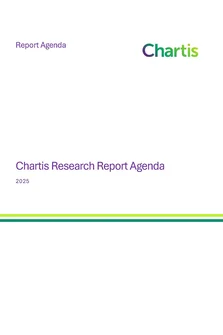<p>Operational risk is “the risk of loss resulting from inadequate or failed internal processes, people and systems, or from external events.” It rose to prominence in the mid-90s following the Barings scandal, and has become one of the primary focal points of financial institutions’ risk management programs in the years following the financial crisis. Basel 2 included it in capital requirements in 2004, although it was not until 2008 that implementation became widespread. It has since been mirrored in its inclusion for insurance firms by Solvency II, which comes into effect on January 2014.</p>
<p><strong>Trends in Operational Risk Management (ORM) include:</strong></p>
<p>• A move towards increased regulatory reporting, and an increased acknowledgement of the dangers of circumventing regulation</p>
<p>•Operational risk is increasingly seen as the responsibility of every individual at the firm, and is moving from centralized risk management functions to more distributed processes</p>
<p>• The influence of CROs has increased, and they are more often a part of board level decisions</p>
<p>• Operational risk is accepted as a risk that affects other risk types</p>
<p>This report covers the specific technologies required for firms to improve their ORM processes, including ORM platforms, policy and procedure management, regulatory change management, and real-time risk intelligence.</p>
<p>This report also covers the ORM capabilities and market position of Thomson Reuters. Chartis believes Thomson Reuters to be one of the leading vendors in the ORM marketplace.</p>
Only users who have a paid subscription or are part of a corporate subscription are able to print or copy content.
To access these options, along with all other subscription benefits, please contact info@risk.net or view our subscription options here: http://subscriptions.risk.net/subscribe
You are currently unable to print this content. Please contact info@chartis-research.com to find out more.
You are currently unable to copy this content. Please contact info@chartis-research.com to find out more.
Copyright Infopro Digital Limited. All rights reserved.
As outlined in our terms and conditions, https://www.infopro-digital.com/terms-and-conditions/subscriptions/ (point 2.4), printing is limited to a single copy.
If you would like to purchase additional rights please email info@chartis-research.com
Copyright Infopro Digital Limited. All rights reserved.
You may share this content using our article tools. As outlined in our terms and conditions, https://www.infopro-digital.com/terms-and-conditions/subscriptions/ (clause 2.4), an Authorised User may only make one copy of the materials for their own personal use. You must also comply with the restrictions in clause 2.5.
If you would like to purchase additional rights please email info@chartis-research.com


